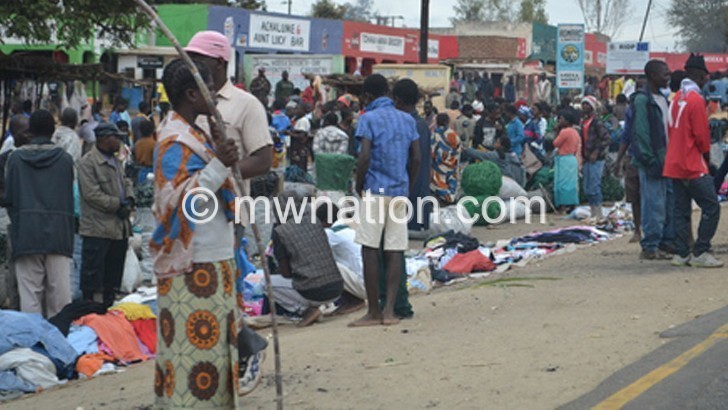SMEs challenges, opportunities
While access to credit improved in 2019, small and medium enterprises (SMEs) continued to face challenges.
This is despite various interventions to improve the sector such as a relatively stable operating environment, softening of lending rates and SMEs borrowing windows in some of the country’s commercial banks.

However, despite the challenges, SMEs are upbeat that the amended Public Procurement and Disposal of Assets Act and the establishment of community colleges gave local businesses chances of being chosen to provide goods and services to government to enhance entrepreneurial skills.
Chamber for SMEs executive secretary James Chiutsi hopes for increased business from government ministries, departments and agencies (MDAs) following the amended Act.
The insertion of Clause 44 Sub-section 10 of the Act mandates prioritisation of indigenous blacks by ensuring that in all bids submitted, 60 percent is given to indigenous black Malawians while 40 percent should go for national competitive bidding.
Chiutsi said the increased participation of businesses with MDAs will enhance SMEs operations.
He is also banking on the community colleges for skills development and entrepreneurial knowledge.
“We see skills and entrepreneurial knowledge abundant in the presence of these colleges.
“This automatically means business and economic growth in the country,” he said.
Besides these other challenges, the political impasse and power outages impacted on small businesses and continued to stifle SMEs.
Chiutsi said power outages continued to negatively affect the operations of the sector in the year.
“The story of power cuts is not new and this has not been any different in the year. We might have started on a good note but we still saw power outages affecting businesses.
“We had to reduce production which meant reduced products for sale, translating to reduced turnover,” he said.
Chiutsi said business performance also slowed in the year, owing to the political impasse in view of the outcome of the presidential race in the May 21 Tripartite Elections whose case is currently in court.
Cross-Border Traders Association of Malawi president Esther Tchukambiri said in an interview that business is currently slow.
“We are experiencing a drop in customers. This is making us register losses in our sales,” she said.
University of Malawi’s Chancellor College economics lecturer Lucius Cassim said it is a fact that the election impasse has affected not only revenue collection, but also businesses performance.
He said: “This is unfortunate as the growth of SMEs could help in job creation and increase the government’s tax base.”
Small and Medium Enterprise Development Institute (Smedi) chief executive officer Rhodrick Chattaika admitted that SMEs faced challenges such as certification of products, access to finance and markets.
He said Smedi is committed to addressing such challenges to ensure that SMEs are empowered and contribute to the country’s growth.
Small businesses remain a crucial component in the economy with figures from the Ministry of Industry, Trade and Tourism showing that Malawi has over 758 118 small business operators.
They operate about one million enterprises with revenue of about $2 billion (K1.4 trillion).
Besides that, about 80 percent of those employed in the sector work for micro enterprises, employing a maximum of four people.





